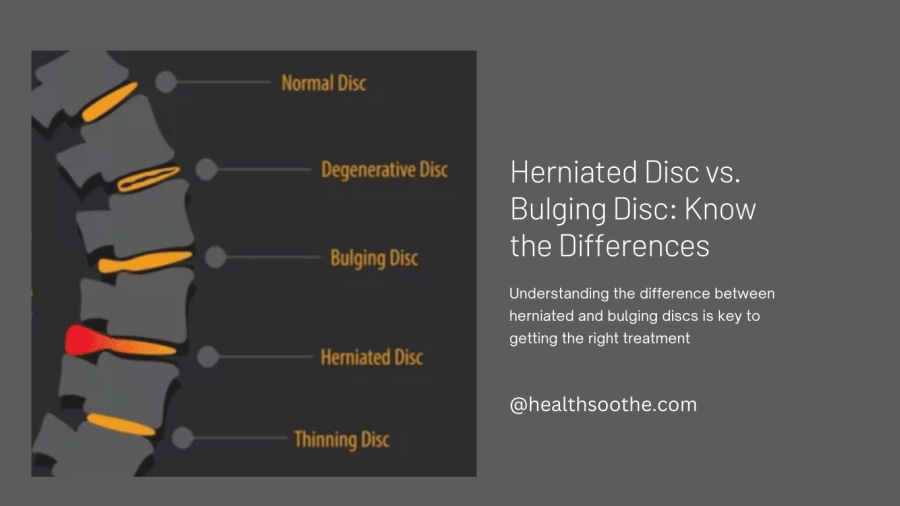When it comes to back pain, there’s nothing more frustrating than not knowing the cause. It’s even harder to treat a condition when you don’t know what it is.
Herniated and bulging discs can both cause back pain but are different conditions. Understanding the difference between herniated and bulging discs is key to getting the right treatment, such as how to heal a bulging disc naturally.
Read on to learn more about the differences between these two conditions and how to recognize them.
What is a Herniated Disc?
A disc is a spongy tissue that cushions the vertebrae in the spine. It acts as a shock absorber that protects the bones and spinal cord.
The disc’s job is to help with movement and allow a person to bend, twist, and lift. A disc can become herniated when the spine is put under too much stress. As a result, the disc can rupture and tear when the pressure is too much.
The symptoms can include
- Pain in the back or neck
- Numbness or tingling in the hands.
- Weakness in the legs
- Urinary issues
What is a Bulging Disc
A bulging disc occurs when the outer part of the disc swells outward and puts pressure on the surrounding vertebrae. The disc bulges out but doesn’t push through the surrounding tissue.
Bulging discs can be found anywhere in the spine, but they’re most common in the lower back and neck. A bulging disc can cause the same symptoms as a herniated disc and can progress to a herniation if the pressure on the disc continues.
In short, a herniated disc is when a tear in the outer layer of a spinal disc allows the inner gel-like substance to leak out and press on a nearby nerve root. A bulging disc is a condition in which the inner core bulges out, but the outer wall does not tear.
Treatment Options
Herniated and bulging discs have almost the exact same symptoms, so how do you tell them apart? You likely can’t, but a doctor can.
An MRI is the best way to diagnose a herniated or bulging disc. The doctor may also order X-rays or a CT scan to rule out other causes of pain, such as a tumor or infection.
The doctor may offer pain medication, physical therapy, or both. The doctor may recommend surgery if a herniated or bulging disc is causing severe pain.
Prevention Tips
Make sure to take care of your spine to prevent a herniated disc or bulging disc from happening. As we age, discs can become less healthy and more likely to rupture. Be mindful of your posture, avoid bending over too much, and keep your general weight in check.
Back pain is a serious problem. A recent study concluded 65 million Americans 1https://hpi.georgetown.edu/backpain/# suffer from back pain at some point in their life.
For those dealing with back pain, both herniated and bulging discs can lead to pain and other symptoms. Understanding the differences between the two is essential to treating back pain properly.
Additional resources and citations
- 1https://hpi.georgetown.edu/backpain/#

